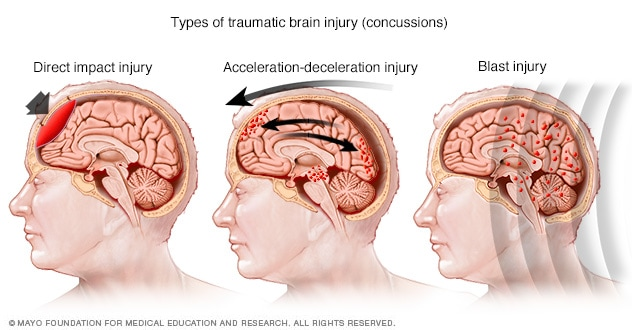General Health Tips & News
How To Recognize Symptoms of a Concussion
By M.M. (staff writer) , published on September 17, 2024

Medicine Telehealth Health Concussion
How To Recognize Symptoms of a Concussion
A concussion is a mild traumatic brain injury that occurs when a blow or jolt to the head causes the brain to rush back and forth. This sudden movement can cause chemical changes in the brain and damage brain cells. Recognizing the symptoms of a concussion is crucial for seeking timely medical intervention and preventing further injury.
Concussion symptoms can appear immediately after the injury or develop over the following hours or days. Below are some of the signs and symptoms associated with a concussion;
Headache
One of the most common symptoms of a concussion is a headache. It can range from mild to severe, persist for days or weeks, and be very painful. A concussion, especially by athletes, can first be identified by a severe headache.
Confusion
Immediately after a concussion, a person may feel confused or disoriented. They might have difficulty understanding what happened or where they are. It's paramount that once a person has started experiencing confusion, they should quickly seek medical attention to ascertain whether the concussion is worse.
Amnesia
Memory loss, especially surrounding the event that caused the concussion, is another hallmark symptom. This condition can include forgetting the moments leading up to the injury or what happened immediately afterward. Medical attention is necessary when amnesia is identified to treat concussion.
Dizziness
Feeling dizzy, lightheaded, or having trouble maintaining balance are common symptoms of a concussion. A person needs assistance to seek medical help in the nearest hospital as soon as possible.
Vomiting and Nausea
Nausea and vomiting often occur shortly after a concussion and are essential symptoms to monitor. Nausea and vomiting intervals may be short and quick, and a person needs to be rushed to hospital.
Behavioral and Emotional Changes
Long-term emotional and behavioral changes, such as ongoing depression, anxiety, mood swings, and irritability, can result from a concussion. Despite them being long-term symptoms, they can easily be identified as a sign of concussion and should be treated as quickly as possible.
Sensory Changes
Continued sensitivity to light and noise and other sensory changes like ringing in the ears can occur after a concussion. To many health experts, this is a common sign of a concussion, and a patient should get the necessary help they deserve.
Sleep Problems
Chronic sleep disturbances, including insomnia and excessive sleepiness, may persist after a concussion. Even though it's a midterm symptom, medical attention is needed once a person identifies such symptoms.
In conclusion, the above signs and symptoms indicate a concussion, and medical assistance should be given as quickly as possible.
Sources
1. https://www.cdc.gov/heads-up/signs-symptoms/index.html
2. https://www.mayoclinic.org/diseases-conditions/concussion/symptoms-causes/syc-20355594
3. https://www.webmd.com/brain/concussion-traumatic-brain-injury-symptoms-causes-treatments
Find articles related to: Medicine Telehealth Health Concussion
More articles about General Health Tips & News
Back to the Health Tips Index




